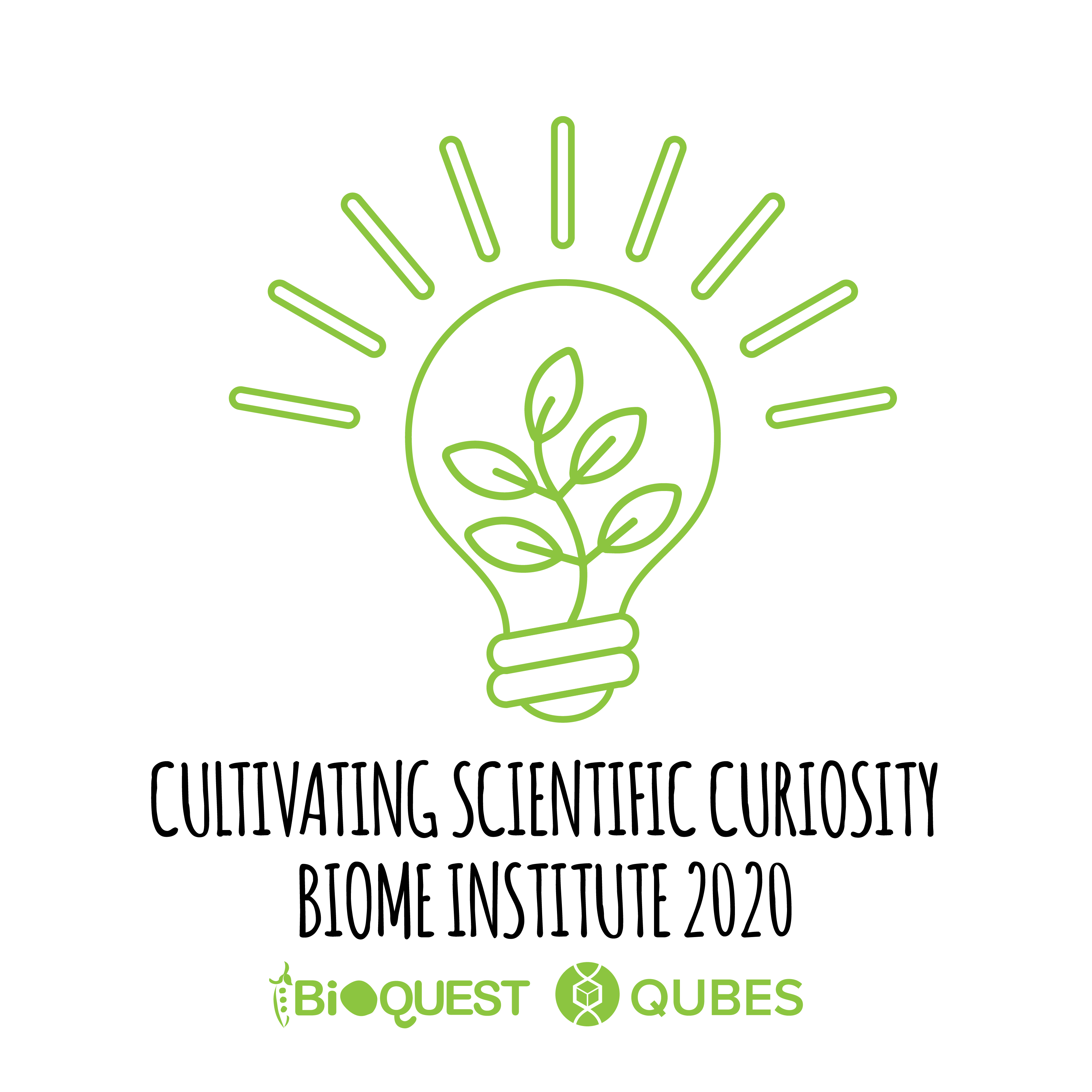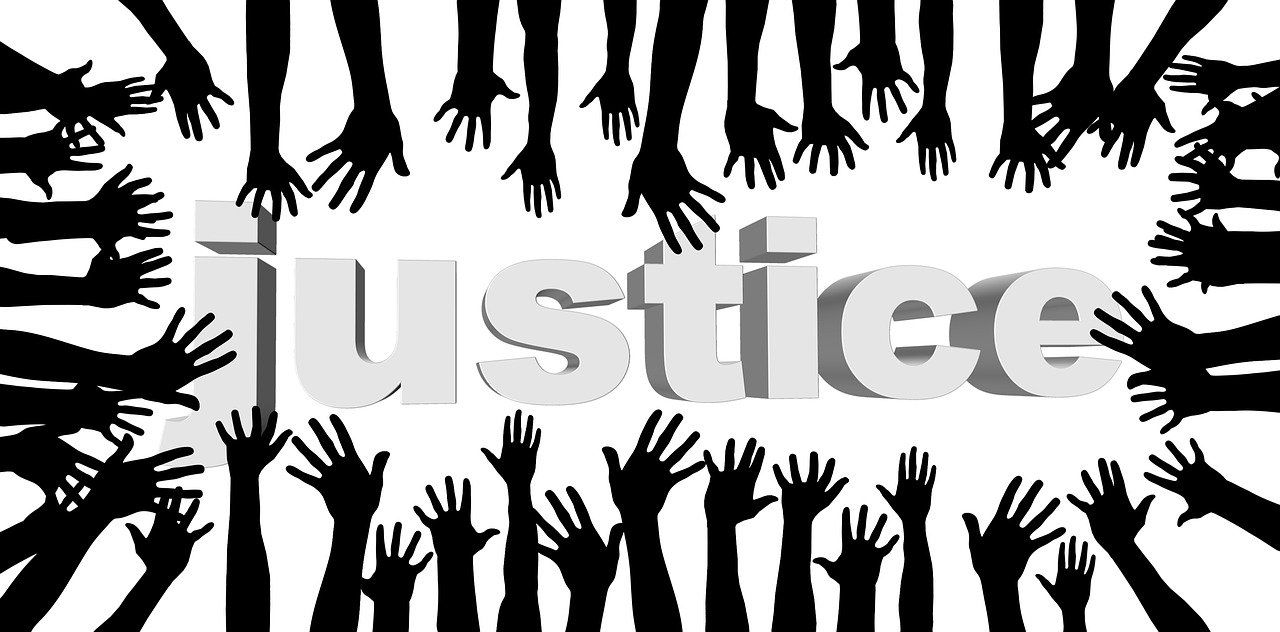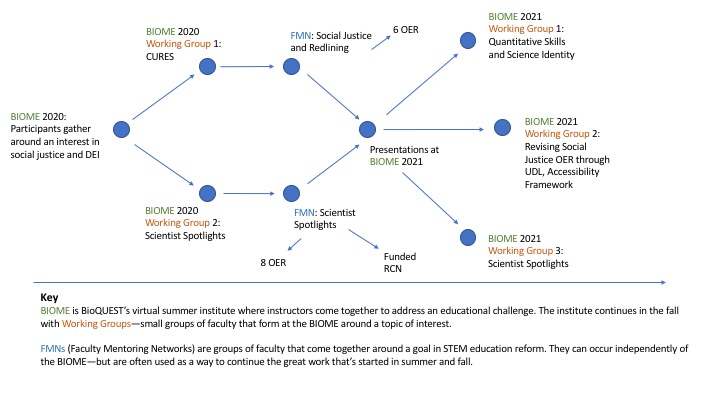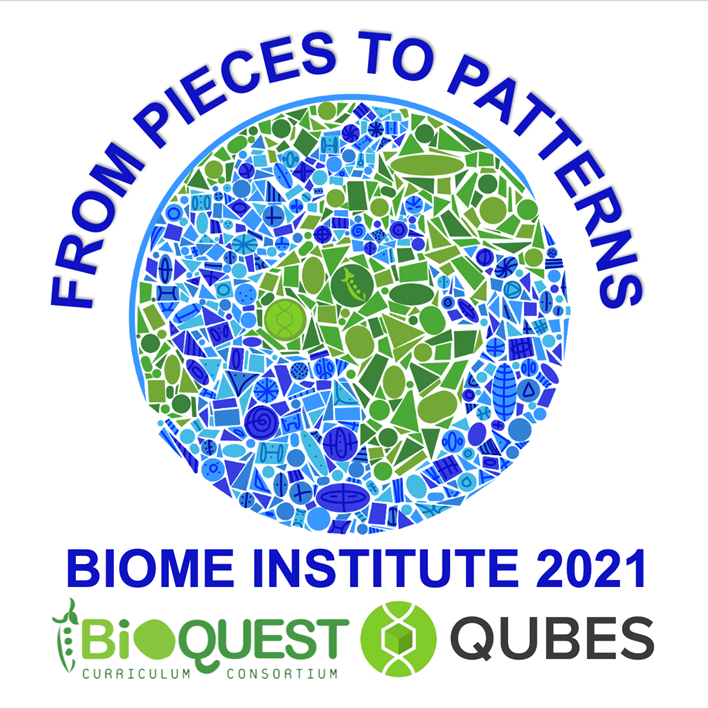
This month Pat Marsteller, PhD, Professor Emeritus at Emory University, longtime BioQUEST leader and volunteer, and recent recipient of the William E. Bennett Award, tells a quintessential BioQUEST story: how a group of faculty coalesced around a topic of interest and importance, formed learning communities (through our BIOME working groups and Faculty Mentoring Networks), and worked together to develop and implement curricula that will have a transformative effect on the student experience. Thank you for sharing this story, Pat!
Building Community and Resources around Social Justice and DEI, a BioQUEST Story
BIOME 2020 - Coming Together
In an evening social hour during the 2020 BIOME Institute, we had breakout rooms where groups could discuss topics of interest. A group formed around Social Justice, Diversity, Equity, and Inclusion. Over 20 people attended and had a rousing discussion about how to think about these challenges in STEM education. After several meetings during the week, two working groups emerged. One focused on Scientist Spotlights and Data; the other focused on Social Justice topics for CUREs (Course-Based Undergraduate Research Experiences) and class assignments.
In this post, I want to tell you about the evolution of these two working groups and resulting Faculty Mentoring Networks (FMNs). It’s a fantastic example of a group of faculty from multiple institutions and institution-types, working together to create a growing number of innovative projects that address a need in STEM education reform. I will also add some comments about the several new groups that emerged at the 2021 BIOME Institute.

One thing that makes the BIOME Institute so unique is that it begins as a summer workshop but continues through the fall with working groups: small groups of faculty that meet to explore a topic of interest to them. As I mentioned, two fall working groups came out of BIOME 2020: one focused on counter-stereotypical scientists and their data and the other on CUREs.
Under the leadership of Tamara Basham, PhD, the CURE group honed in on tools to assess the long-term impacts of redlining policies. The Spotlights group, with leadership from Suann Yang, PhD, and Rachel Pigg, PhD, began to identify ways to include graphs and data analysis from diverse scientist papers.
Below, you can see our final reports from Fall 2020 (where you can also see the participants in each group):
One thing was clear in these fall working groups: we were all just getting started.
Spring 2021 Faculty Mentoring Networks - Developing Materials
Our work continued in the spring as two separate Faculty Mentoring Networks (FMNs). FMNs are groups of faculty, supported by BioQUEST and run on the QUBES platform, that come together with the goal of creating and implementing new resources and reforms in the classroom.
Our FMNs were very productive. Not only did the groups add new people, they produced many new materials, and workshops and poster sessions for BIOME 2021. Our discussions were lively and included a lot of thought and reading about how to introduce controversial topics so all students could be included. We talked about ways to use our own stories and pathways into science and how to create syllabus statements that feature why we are including social justice topics and diversity, equity, and inclusion as part of our courses.
Scientist Spotlights and Data FMN
The Scientist Spotlights group produced eight new spotlights, featuring data on dead zones, lizard cold tolerance, nanoparticles for treating cancer, urban stream invaders, phenotypic polymorphism, coyote habituation to humans, action potentials and animal behavior.
These spotlights address data literacy of undergraduate biology students and foster diversity in undergraduate biology classrooms by highlighting scientific contributions from biologists who are members of Historically Excluded Groups (HEGs). This includes any group of people whose rights, privileges, opportunities, or representation has been limited by society due to their race, gender identity, sexual orientation, ability difference, or economic status.
In all of the spotlight lessons, students complete a data activity (e.g., interpret a graph) from a study authored by a biologist from an HEG, then read, watch, or listen to an interview with the counter-stereotypical biologist about the data or figure and/or their background and career path. The lessons end with reflections, all guided by predetermined learning outcomes.
In addition to the lessons, one of our FMN members produced a workshop for high school teachers, and we also hosted a highly attended workshop for BIOME 2021, Scientist Spotlights and Data Nuggets Workshop Materials, which has received over 150 views and 122 downloads of the materials (please see the resource for a list of contributors). In this workshop, participants explored the lessons that were created by the FMN.
Kristen Butela, PhD, Sheela Vemu, PhD, and Pratima Jindal, PhD also produced a poster titled “Best Practices and Recommendations for Designing Activities for Highlighting Diverse Scientists Through Quantitative Skill Development.” The materials have been viewed over 900 times! You may want to visit this resource to see how you can easily develop materials.
Looking ahead, Suann and Rachel submitted a successful NSF Research Coordination Network (RCN) to continue this work. They plan specific strategies to improve representation of diverse scientists in the curriculum and to incorporate data interpretation skills, which are increasingly critical for student success in biology.
Social Justice and Redlining FMN

Our social justice and redlining group published six curriculum modules that cover topics such as socioeconomic trends and tree cover, health inequities and redlining, air quality in Los Angeles, environmental justice in Atlanta, Albedo and urban heat islands, and the redlining legacy in Oakland. We explored numerous tools for graphing data, and we prepared ways for students to explore at multiple levels.
This group also produced two workshops for BIOME 2021 and several posters. The first BIOME workshop discussed how the historical practice of redlining could be used as a gateway to discussing social justice issues in STEM courses in the context of environmental science. The second workshop introduced redlining in the context of health. (Please see the links above for materials and contributors).
As you can see, not only did the FMNs produce open educational resources for all to use, they also gave back to the BIOME, sharing their work and opening their community, which spawned even more projects.

BIOME 2021 Fall Working Groups - Ongoing Projects
Our workshops, posters, and discussions at BIOME 2021 prompted the formation of at least three Fall 2021 working groups.
One is a follow-up to Scientist Spotlights with data. Participants are creating new spotlights and planning a Spring 2022 FMN. We are also writing rubrics to help instructors develop scientist spotlights/data nuggets for different target audiences as well as to have the scientist spotlights/data be scaled up or down the curriculum. We are planning to focus on the questions we want to ask scientists, as well as: framing--how we present to students why we are doing Scientist Spotlights; and presenting--why we focus on inclusivity in a way that doesn’t lead to negative stereotype threats. We also plan to create tags that allow the Scientist Spotlights to be more readily searchable.
 Another group Revising Social and Environmental Justice Open Educational Resources through UDL and Accessibility Lenses is planning to revise or design a module using a specific approach or framework (accessibility, UDL, social justice). We have discussed potential modules, explored different frameworks, and shared resources. We have also discussed the intersections and applications of these frameworks. We are currently planning to complete a UDL mapping activity on our modules to continue exploring the UDL framework and then focus our revisions. Check out the UDL guidelines. We could all learn from thinking about this as we plan new courses and revise old ones.
Another group Revising Social and Environmental Justice Open Educational Resources through UDL and Accessibility Lenses is planning to revise or design a module using a specific approach or framework (accessibility, UDL, social justice). We have discussed potential modules, explored different frameworks, and shared resources. We have also discussed the intersections and applications of these frameworks. We are currently planning to complete a UDL mapping activity on our modules to continue exploring the UDL framework and then focus our revisions. Check out the UDL guidelines. We could all learn from thinking about this as we plan new courses and revise old ones.
A third group, QSSI (Quantitative Skills and Science Identity) is designing a study to implement in the spring to look at the relationship between quantitative skills/self-efficacy and science identity. They plan on using scientist spotlights to improve a sense of belonging in STEM. They want to measure 1) changes in quantitative skills in a pre/post assessment, 2) changes in self-reported sense of belonging in STEM (science identity) and self-efficacy in quantitative skills in a pre/post survey. They are starting to map out experimental design, tailoring/developing the design and a survey for self-efficacy and science identity.
Looking Ahead
As you can see, what started as a group of invested faculty interested in incorporating social justice issues in their courses has evolved and grown into multiple projects and curricula that can be implemented in the classroom. We have recruited people from high school teachers, postdocs, and all levels of faculty seniority, and the discussions have been more powerful because we have people from community colleges, minority-serving institutions, big and small colleges and universities and people from across the country.
Bringing all these voices to the discussions has resulted in powerful insights and driven us to continually evolve our quests. Although our work--to incorporate social justice themes and stories of counter-stereotypical scientists and their data into curriculum and to inspire community-based changes--has just begun, we hope you will all join us to build a brighter future.
Keep an eye out on the BioQUEST/QUBES newsletter for opportunities to get involved in Spring 2022.
Collated Resources
Scientist Spotlights and Data
BIOME 2020 Working Group Final Presentations
FMN 2021 Final Products
BIOME 2021 Workshop: Scientist Spotlights and Data Nuggets Workshop Materials
Poster: Best Practices and Recommendations for Designing Activities for Highlighting Diverse Scientists Through Quantitative Skill Development
Social Justice and Redlining
BIOME 2020 Working Group Final Presentations
FMN 2021 Final Products
BIOME 2021 Workshop: Integrating Social Justice into your STEM Classroom: Redlining and Environmental Science
BIOME 2021 Workshop: Integrating Social Justice into your STEM Classroom: Redlining & Health